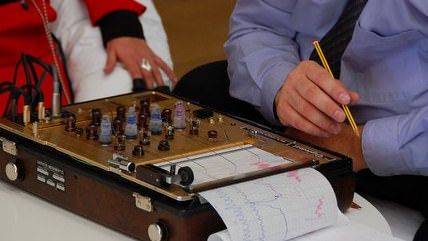Feds' Pursuit of Polygraph Cheaters Leads to Sharing of Personal Data of Thousands of People

In September, J.D. Tuccille wrote about a man landing in prison for teaching people how to relax and "beat" polygraph tests. McClatchy had been reporting on the federal pursuit as the government tests thousands of thousands of people every year for security clearances.
McClatchy is still on the campaign and now reports on the inevitable side effect of this pursuit. The feds collected the data of customers of two men under investigation and passed that information around to various agencies without redacting any information:
Federal officials gathered the information from the customer records of two men who were under criminal investigation for purportedly teaching people how to pass lie detector tests. The officials then distributed a list of 4,904 people – along with many of their Social Security numbers, addresses and professions – to nearly 30 federal agencies, including the Internal Revenue Service, the CIA, the National Security Agency and the Food and Drug Administration.
Although the polygraph-beating techniques are unproven, authorities hoped to find government employees or applicants who might have tried to use them to lie during the tests required for security clearances. Officials with multiple agencies confirmed that they'd checked the names in their databases and planned to retain the list in case any of those named take polygraphs for federal jobs or criminal investigations.
It turned out, however, that many people on the list worked outside the federal government and lived across the country. Among the people whose personal details were collected were nurses, firefighters, police officers and private attorneys, McClatchy learned. Also included: a psychologist, a cancer researcher and employees of Rite Aid, Paramount Pictures, the American Red Cross and Georgetown University.
Moreover, many of them had only bought books or DVDs from one of the men being investigated and didn't receive the one-on-one training that investigators had suspected. In one case, a Washington lawyer was listed even though he'd never contacted the instructors. Dozens of others had wanted to pass a polygraph not for a job, but for a personal reason: The test was demanded by spouses who suspected infidelity.
Read the whole story here.
Follow this story and more at Reason 24/7.
Spice up your blog or Website with Reason 24/7 news and Reason articles. You can get the widgets here. If you have a story that would be of interest to Reason's readers please let us know by emailing the 24/7 crew at 24_7@reason.com, or tweet us stories at @reason247.
